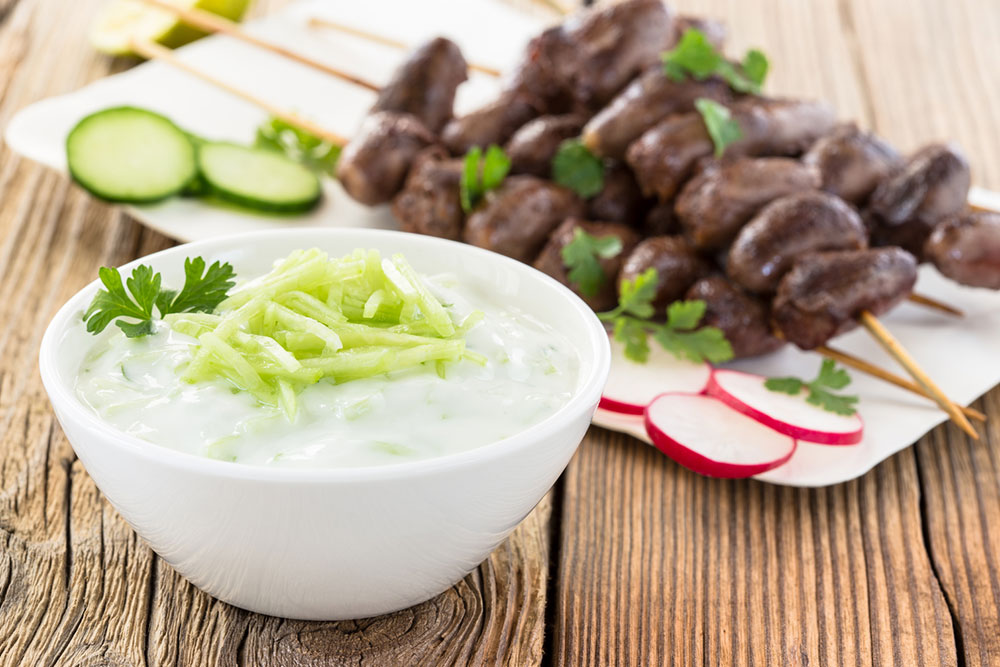Gut-soothing foods for crohn’s disease

Consuming healthy bacteria must be a part of an everyday lifestyle, and for all the good reasons such as boosting immunity, metabolism, and mental health and for the overall physical well-being. Indeed, both the good and bad bacteria live in our digestive system, and this balance affects almost all functions of our health. Now, this can be both positive and negative that could upset your gut in the form of an illness or an infection. All you need is to increase your probiotic intake to restore your digestion process and maintain a balanced intestinal system. Herein, we discuss the best probiotic foods you must eat for a healthy.
Crohn’s disease is a chronic inflammatory bowel disease (IBD) that causes swelling of the digestive system. This can result in severe diarrhea, abdominal pain, fatigue, loss of weight, and malnutrition. The inflammation caused by Crohn’s may commonly affect the small intestine in the digestive tract.
Yogurt
This dairy food has the best strains of bacteria that ease one’s digestive system. And in today’s scenario, you would find several brands that promote probiotic yogurt specifically designed to meet digestive needs. You could tweak it by adding some fruits or toasted oats for that extra flavor. You must ensure that it does not have any sugar, addictive and preservatives.
Kefir
You will find a hoard of flavors available in the market, and it’s probably the finest fermented milk drink for it has the best strains of friendly bacteria. The good news is that people with lactose intolerance can easily consume this drink with much ease.
Kimchi
This is one fermented vegetarian dish that is packed with vitamins A and C and has the best anti-inflammatory properties. You can consume this as a side dish or eat with a bowl of rice or noodles to perk it up.
Fermented cheese
You could easily add cheese to your daily regime intake for that extra dose of probiotics. Mozzarella and regular cheddar cheese are good to go as they have live strains of healthy bacteria. Also, you could look for cheeses that have labels for active cultures.
Buttermilk
This is one of the best and powerful sources of probiotic that you could consume on an everyday basis. You must look also for cultured buttermilk in case you are all specific about the probiotic food you want.
Apple cider vinegar
You got to acquire the taste as an everyday thing, yet this is the best of the lot in terms of promoting a super healthy gut. Since it’s acidic, digestion is one step ahead in the most positive way. It’s also good for weight loss and boosting metabolism.
Kombucha
This drink is made of black or green tea, yeast, and sugar and is widely consumed for gut healing and preventing diabetes and heart disease. You can consume this drink in case of an upset stomach as when needed.
Sourdough bread
Next time you plan for a sandwich dinner or a lunch, switch to sourdough as it is packed with probiotics.
Sour pickles
Natural in its best way, yet choose the one that has been fermented in salt and water and not vinegar.
Banana
This fruit is high in probiotic microorganisms, and so, having one every day is a good choice.
Let your immune system improve in the most natural way and all you need is to boost it up with the right diet so to maintain a holistic balance of good and bad bacteria for that healthy gut.
Crohn’s disease, among other inflammatory disorders, is more likely to develop in people affected with psoriasis or psoriatic arthritis. Both these conditions are linked to symptoms of inflammation in the body. Taking Otezla can be helpful here, as one can manage psoriasis and psoriatic arthritis, and reduce the risk of Crohn’s disease.
One can also suffer from an inflammatory condition known as ulcerative colitis. It can cause ulcers and inflammation in the inner lining of the colon before spreading to the rest of the colon. It is commonly seen in people above the age of 50. Common symptoms include abdominal cramps, diarrhea, and rectal pain.